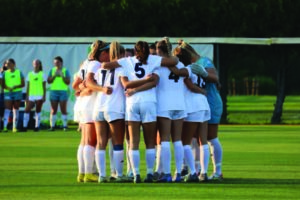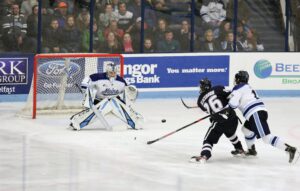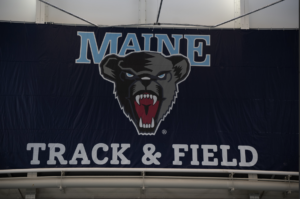Last fall, the NHL was able to complete its season inside of a bubble in Canada. Now with the start of a new season outside of a bubble and across two countries, the NHL is having a much tougher time maintaining players’ safety. So far every league that has conducted a season outside of a bubble has faced issues like these, but all have been able to carry on with their seasons and complete them.
Due to these difficulties, the NHL has had to postpone or reschedule 35 games as of February 13. Over half of the league has had at least one game postponed due to COVID-19 protocols. These postponements have caused teams to have a wide range of total games played. The Vancouver Canucks have played the most games, with 17 games played, while the team that has played the fewest is the New Jersey Devils, at 9 games. The Devils have not played a game since the month of January due to COVID-19. Meanwhile the Canucks have not had a single game postponed, making this team somewhat notable.
So far all 35 games that have been postponed have involved American teams. None of the seven Canadian teams have had a game postponed thus far. This can be attributed to the success that the NHL has experienced with implementing an all-Canadian division. This year in the NHL the teams only play against other teams within their division. This means none of the Canadian teams have traveled to the United States this season.
There are a few reasons to remain optimistic in spite of the myriad issues COVID-19 seems to produce. For one, all of the other professional sports leagues that have played in the U.S. have endured COVID-19 issues and still completed their seasons. For instance, the MLB had the Miami Marlins outbreak, which was one of the single highest case totals for one team in U.S. pro sports. Eighteen Marlins players tested positive for COVID-19 at the beginning of the MLB season, and they were forced to miss a whole week of games. Despite a majority of their roster having the virus and the team having to make up a number of games, the Marlins were able to overcome this adversity and went on to complete their season and make the playoffs. This offers a glimmer of hope for the NHL.
The other reason for optimism is the development of COVID-19 vaccines and the possibility of leagues potentially being able to acquire vaccines for their athletes. There is a real possibility that as the NHL season goes on, the league will be able to provide their athletes with opportunities to get vaccinated before the conclusion of the regular season. Should vaccinations become widely accessible, the NHL would hopefully be able to conduct their post season with little to no issues. At the moment that seems like a far-fetched reality, but it is not unthinkable due to the expansion in vaccine availability in the U.S. It may be a little harder for Canadian teams to get the vaccines due to the slower distribution of the vaccine in Canada, but there is a high financial interest to make vaccines available to professional athletes.
Hopefully the NHL is able to overcome their early season struggles with COVID-19 and successfully complete their season. With the likelihood that vaccines will be available to the general public by late next fall, there is optimism for a fairly normal fall season.







